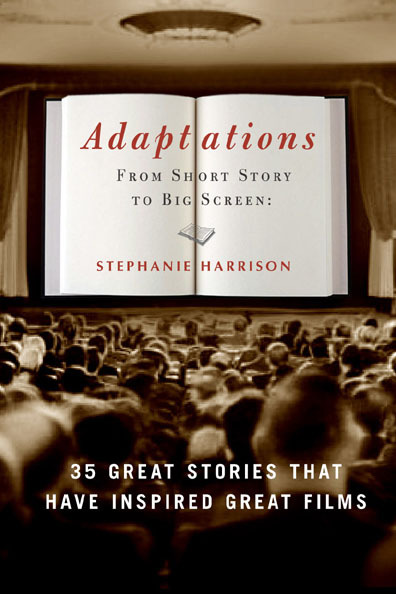
September 2008
If you’re liike me, you have been disappointed more times than you can count with film adaptations of your favorite novels. All too often the transition from story to cinema is a bumpy ride at best, or a soul-starved rip-off at worst. Whether driven by economic, political, or catering to the-lowest-common-denominator forces, as far as audience intelligence goes, directors and producers too often succeed in bleeding the life out of stories, making the word “adaptation” something synonymous with “adulteration”.
Yet surely there was something about the original story that first caught an eager director or producer’s eye. Something that convinced big studio bigwigs to cough up the funds to make a major movie based on the original novel or short story or play. Even though the original story might only have been published in a small magazine, or might have been forgotten with the passage of years, wouldn’t it be fun to read the original story and then compare it to the movie that was adapted from it?
That’s what Lauri Burke and I thought as we discussed ideas for a short story program. We decided it would be interesting to choose a few stories from a wonderful anthology entitled Adaptations: From Short Story to Big Screen, edited by Stephanie Harrison. Lauri and I thought that some wonderful discussions would arise by first reading short stories known for their psychological or literary excellence and then comparing them to their feature length adaptations.
We chose The Basement Room by Graham Greene, Mr. Blanding Builds His Dream House by Eric Hodgens, The Swimmer by John Cheever, and Blow-Up by Julio Cortazar. From these four stories, very different in writing style, purpose, and theme, sprang four extremely interesting film adapations: The Fallen Idol, directed by Carol Reed; Mr. Blandings Builds His Dream House, directed by H.C. Potter; The Swimmer, directed by Frank Perry; and Blow-Up, directed by Michelangelo Antonioni.
Short stories as a genre are like concentrated breath mints; they often sting and startle, and they linger with you long after you’ve swallowed them. In a short story there is little time for reams of narration, exhaustive descriptions of scenery, or a cast of thousands. The story line rarely rambles; the characters are immersed in the challenge of the story from the very first lines. Did the butler push his wife down the stairs; will the Blandings get the home they’re hoping for; is the swimmer going to get home to his family; did the photographer witness a crime? These are central questions in the four stories earlier mentioned and the answers, although at times ambiguous, don’t waste any time with peripherals. Unlike novels which must have so much taken out in order to fit the frame of a feature film, short stories often need very little adjustment; perhaps just a bit more diagloue added to smoothly transition to a movie.
In addition to reading the four stories for our series, I couldn’t resist reading a few more. One of my favorites in the book is It Had to Be Murder by Cornell Woolrich, the story that was the basis for one of my favorite Hitchcock movies, “Rear Window”,starring Jimmy Stewart and Grace Kelly. I also really enjoyed Spurs by Tod Robbins, Red Ryder Nails the Hammond Kid by Jean Sheppard, and The Wisdom of Eve by Mary Orr which were adapted to film as Freaks, The Christmas Story, and All About Eve, respectively.
The current program for Adaptations is full, but Lauri and I hope to reprise the program as an evening program in Spring, 2009. But that’s a long time to wait. In the meantime, why not borrow a copy of Adaptations and get a head start on some wonderful, memorable, adaptable short stories?
Here’s the link for the book in the Ocean State Library System:
http://library.provlib.org/search/a?searchtype=t&searcharg=adaptations&SORT=D&searchscope=1




